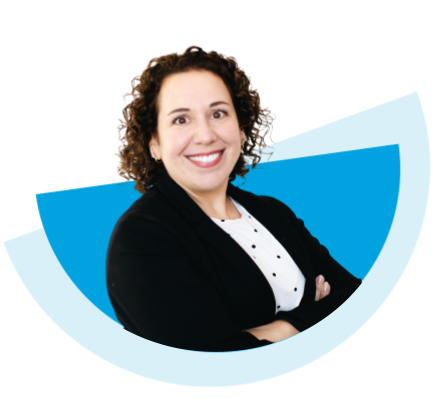Reskilling Benefits: Taking a Look at the Reskilled Student’s Experience
Currently, organizations face employees quitting at record-breaking levels, with the voluntary quit rate standing 25 percent higher than before the pandemic. As significant numbers of employees leave the workforce, organizations look to a new, internal employee “benefit” to attract and retain talent–reskilling.
than before the pandemic. As significant numbers of employees leave the workforce, organizations look to a new, internal employee “benefit” to attract and retain talent–reskilling.
Roughly 77 percent of workers surveyed by McKinsey & Co stated they, “are ready to learn new skills or completely retrain.” Offer your loyal workforce new learning and development opportunities to help employees reach their full potential and new levels of success while driving toward your company’s retention and diversity goals.
Reskilling and upskilling initiatives present an alternate path for employees to reach their full potential. However, before diving into a new talent initiative, it’s important to understand what you’re getting and what your employees will experience throughout the program. To help, we’ve explained the key experiences of a reskilled student below.
The Many Faces of Reskilling
Several factors can determine which program format is best for your company’s learning and development goals. From the number of developers needed, to financial resources, to personnel interest, reskilling can be tailored to meet your needs in a flexible and scalable way.
Reskilling providers often start with a consultation phase to help organizations identify the scale program they need. From there, reskillers present the program formats to suit their requirements. At Tech Elevator, we follow a similar approach and offer several solutions: sponsored seats, dedicated deliveries and curriculum licensing. Each generates varying numbers of graduates upon the program’s completion.
Decision-makers also have the opportunity to select from either part-time, full-time, remote or in-person offerings. Much like the scalable options with sponsored seats and dedicated deliveries, a provider will present the program types that best suit an organization’s initial requirements.
Whatever solution your team moves forward with, it’s important to know that your employees will not go through the program alone. They will have their classmates, proactive instructional staff as well as a dedicated Pathway team for support and professional coaching.
See what students and our reskilling partners at KeyBank had to say about the program in the video below.
Going Through the Admissions Process
Much like the consultation phase, a company can tailor their admissions process for their own needs. While requirements vary by company, in general, this phase will consist of three parts to help qualify candidates: an application phase, behavioral interviews and aptitude testing.
Some organizations manage their own admissions to ensure a deeper insight into their sponsored employees, while others defer to their experienced reskilling provider to manage admissions. With either option, your team can establish your level of involvement before getting started. In our experience, we’ve found that a combination of traditional testing and interviewing is the best approach for identifying candidates.
The first step in admissions is the application phase, where students can gather more program information through optional information sessions. If you’re working with a partner, they may even offer information sessions or host Open Houses. Once a student is ready, they’ll submit an application to start the process and schedule a time for a behavioral interview.
Behavioral interviews test an applicant’s motivation and determination towards the program, as well as gauge their strengths for the career readiness portion of the curriculum. If your team chooses to conduct these interviews internally, consider coordinating with internal recruitment teams as well as reskilling program managers. Their interview experience and program knowledge will help them vet candidates effectively for successful program outcomes.
In conjunction with behavioral interviews, we also encourage organizations to administer our proprietary aptitude test. This test measures several problem-solving competencies that have been strongly correlated with academic success in our program. These competencies include the ability to solve analytical, symbolic, and conditional problems.
The aptitude test was developed using data from over 1,000 students and through contributions from industrial psychologists and experts in the education field. Tech Elevator partnered with Watterson & Associates and The Center for Excellence and Innovation in Education at Cleveland State University to validate the aptitude test is predictive, effective and free of bias.
Understanding Curriculum and Pacing
Curriculum
Tech Elevator’s full-time, 14-week coding bootcamp consists of two tracks that run in parallel with one another–the technical instruction and a career readiness program called Pathway Program™.
The technical curriculum is broken into four, evenly-paced modules designed to equip students with the practical knowledge to develop dynamic web-based software systems as well as the typical skills for an entry-level software developer.
The modules combine curriculum readings, daily quizzes, lectures and paired-programing exercises that target different learning styles to maximize subject mastery. Each morning, students are quizzed to measure understanding and the application of past concepts. Using this approach Tech Elevator instructors are able to work proactively when students need assistance and provide support to keep anyone from falling behind.
At the end of each module, students complete mini-capstone projects in teams, further gaining experience and applying their knowledge in real-world settings.
Pacing
Your typical full-time, coding bootcamp student is expected to commit 40-60 hours per week for roughly 14 weeks. Considering the time commitment, manager-level support is key to program success and a positive student experience.
Tech Elevator’s team recommends students devote their full-time attention to the program. This would require pausing their regular, day-to-day responsibilities to focus on course materials. If allocating this amount of time is not possible for your team, there are part-time program options available to explore.
With either option, students see considerable benefits after graduation. For example, the average salary increase for our graduates is $24,000, while this varies by company, better compensation is a major driver in improving retention rates. Additionally, employees facing career plateaus or job obsolescence now have further advancement opportunities and job security.
Optional Career Readiness Program
According to a study by LinkedIn, 59 percent of hiring managers believe soft skills are difficult to find and 58 percent stated the lack of soft skills is limiting productivity. Understanding that interpersonal skills and teamwork is equally as important as technical skills, Tech Elevator developed the Pathway Program™ to coach students into developing these strengths.
“More than 75% of employers surveyed said that soft skills were as important as – or more important than – technical skills in securing entry-level employment,” says Jennifer Pritchard of the Seattle Jobs initiative.
Companies and decision-makers partnering with Tech Elevator can utilize our optional career readiness program to develop soft skills and prepare students for their new tech roles. The Pathway Program™ runs in tandem with the technical curriculum offering up to 45 hours of career readiness support and instruction.
Limited soft skills can hinder a team’s ability to perform efficiently which is why past partners utilize our program to better transition employees into their technical teams.
Reskilling in Action
Still not convinced? Take a look at what past reskilling graduates have to say about their experience:
“It was almost unreal to tell my wife about the program. It wasn’t a small percent raise, it was almost double my salary… I had always been interested in coding but didn’t have the opportunity. There were parts of it[the program] that were easy and there were parts of it that were difficult. I found that it was really important to connect with the people that were in my class and work together.”
Jared Crist, 2021 Tech Ready Graduate
“I’ve always had a passion for IT going back to when I was nine. I just didn’t know where I wanted to be.”
“The majority of people going through these programs know zero coding at the beginning.”
Joseph Williams, 2022 Tech Ready Graduate
“Not only was my main instructor, but the other instructors in my particular cohort were very supportive.”
Fesseator Wright-Nelson, 2022 Tech Ready Graduate
“They [the reskilled students] understand some of the nuances of how that company does things. So having students who already know how some of these things fit into the greater organization is a real benefit for them as well as their employer.”
David Ferreira, Tech Elevator Instructor
Ready to build your tech teams for the future? Let’s chat.
Explore our reskilling program page for more information on how to get started and create a positive experience for your employees.
Schedule a time to chat with our reskilling team to discuss your options.
 Written by
Written by